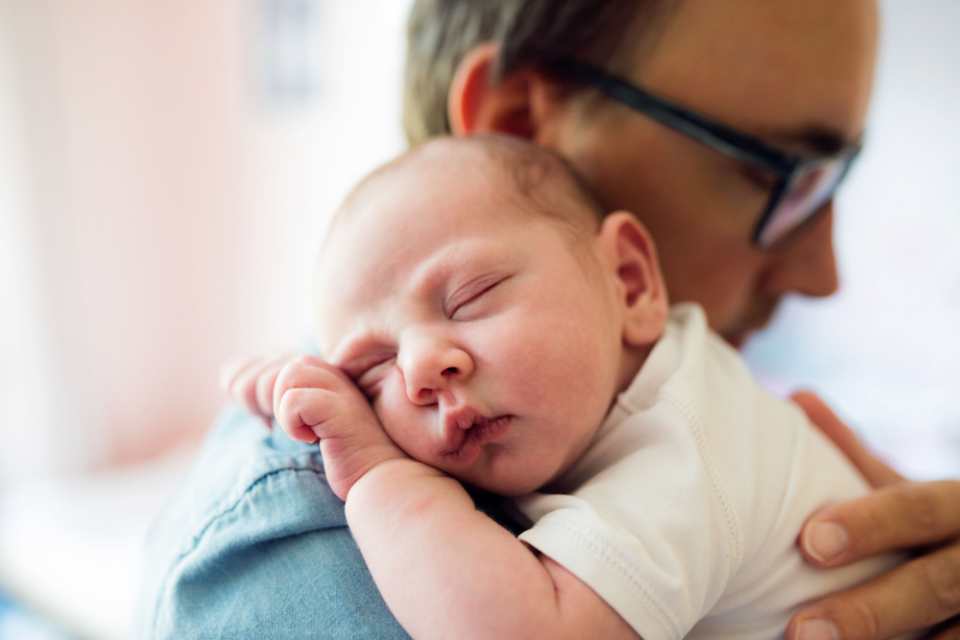It is being understood increasingly that fathers may develop mental health conditions, including depression, around the birth of a baby. In this article Holly Christina Smith, Research Fellow in Perinatal Mental Health with Dr Patricia Schartau, academic clinical lecturer in primary care and Professor Irene Petersen, Professor of Epidemiology and Health Informatics, University College, London present the evidence around depression in fathers and suggests how they may be supported better.
__________________________________________________
Research into parental mental health is often focused on mothers, this is despite increasing evidence that depression is also common in fathers. It is thought that roughly one in ten fathers experience depression during their partner’s pregnancy or in the first year after having a child. However, this figure likely underestimates the true burden of paternal depression as fathers are not usually asked about their mental health. Studies have also found that only 1 in 20 fathers are receiving antidepressant treatment in the year after having a child. This suggests that nearly half of men may not be receiving pharmacological treatment for their paternal depression.
During their partner’s pregnancy and the first year after having a child may be a time of increased risk of depression as many fathers experience changes in their social, emotional and relationship roles, are adjusting to being a parent, and may experience additional work and financial stress. Studies have also identified a number of risk factors which may make certain men more likely to experience paternal depression. These include having a history of depression, increased social deprivation, lower levels of education, unemployment, low social support and marital distress.There is also evidence that maternal and paternal depression can co-exist in around 3% of couples.
There remains much stigma for men to receive mental health treatments, particularly at a time when there is a lot of focus on the health of the baby and mother. Fathers and their mental health may not be identified as a priority during their partner’s pregnancy and after the birth of a child and as such many fathers may not receive the support or treatment that they need. This could be due to their own choices, lack of awareness, priorities in the family unit, or limitations in the broader health care system. However, it is essential to ensure that new dads get the care they need too.
Better support for new dads
Being able to provide better support for new dads with their mental health will require several approaches. These will likely include increasing awareness, reducing stigma and improving access to screening and specialist services.
Increasing the awareness and reducing the stigma of addressing father’s mental health needs has seen some progress in recent years. Some campaigns such as #howareyoudad has helped make these issues more front and centre. However much more could be done to make the most of opportunities that already exist. For example, many couples attend antenatal or parenting classes during pregnancy to help them prepare for birth and having a baby. These classes could provide more information on the potential impact on having a child on men’s mental health and signpost to sources of support.
In general, women receive lots of planned healthcare throughout their pregnancy. This care is focused on the mother and baby. However, fathers often attend these appointments, and this is an opportunity to engage fathers in a conversation about possible changes in their health. Likewise, there is an opportunity to provide information material about paternal depression to new dads. It could be as simple as a poster in the men’s toilet or including an information leaflet about paternal depression alongside routine communications sent to mothers.
Care pathways for new dads
There is currently no formal care pathway for fathers during or after their partner’s pregnancy. This is despite there being effective treatments for depression available which could clearly provide benefits not only for fathers but for their partner and infant in turn. While past emphasis has been on a postnatal check for mothers, fathers potentially at higher risk of depression – such as those with a history of depression – could also be invited for their own mental health check-up with their GP during their partner’s pregnancy or after having a child. These appointments could provide an opportunity to screen and provide treatment for depression or refer to specialist services.
Further research needed to support new dads
Finally, there remains many unanswered questions about how best to improve the mental health of new dads. High quality research is vital in filling this gap. Further research is needed to identify: the most effective and cost-effective models of care for supporting new dads with their mental health, the most effective treatment options for paternal depression and those most at risk. Further research is also needed to investigate whether experiencing depression can be a barrier to fatherhood for men. This information is necessary to inform future healthcare priority setting which should ensure a more family-centred model of care which would better serve mothers and fathers as they transition to parenthood.
Holly Christina Smith, Research Fellow in Perinatal Mental Health,
with Dr Patricia Schartau, academic clinical lecturer in primary care and Professor Irene Petersen, Professor of Epidemiology and Health Informatics, University College, London

Oct 2023



1 comment
I would love to speak to the authors about our parent/infant perinatal support service for dads – commissioned within perinatal mental health pathways and family hubs and working with midwives and other professionals.
Please contact me so we can share our model, work, learning and case studies.
Comments are closed.